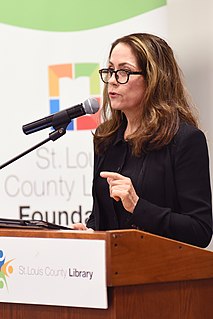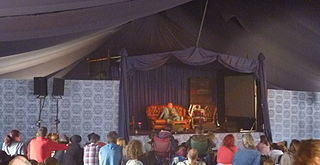A Quote by Mary Karr
Prose cannot compete with the economy of poetry, the ability to have a full artistic experience in a short period of time.
Related Quotes
Poetry has an indirect way of hinting at things. Poetry is feminine. Prose is masculine. Prose, the very structure of it, is logical; poetry is basically illogical. Prose has to be clear-cut; poetry has to be vague - that's its beauty, its quality. Prose simply says what it says; poetry says many things. Prose is needed in the day-to-day world, in the marketplace. But whenever something of the heart has to be said, prose is always found inadequate - one has to fall back to poetry.
Poetry is the most direct and simple means of expressing oneself in words: the most primitive nations have poetry, but only quitewell developed civilizations can produce good prose. So don't think of poetry as a perverse and unnatural way of distorting ordinary prose statements: prose is a much less natural way of speaking than poetry is. If you listen to small children, and to the amount of chanting and singsong in their speech, you'll see what I mean.
Certainly for me prose has a dilatory capacity, insofar as I don't trust my abilities in prose. I imagine I could have done the same thing in poetry, but sometimes I feel more fluent in poetry than in prose, and as a consequence perhaps I might pass too quickly by a thing that I might, in prose, have struggled merely to articulate. That struggle creates space, and it seems to me a particular kind of space into which memory flows easily. I suspect I think better in poetry, however.
What distinguishes a human being from a computer? The ability to add up numbers? The ability to understand language? The ability to be logical? It is, of course, none of the above. It is the ability to play. Computers cannot have fun. They cannot fantasize. They cannot dream, they cannot experience emotion or summon intuition. These rare, precious qualities come naturally to every child on this earth yet they tend to be seen, by well meaning adults, as faults, foibles and failings. In pushing tiny toddlers to 'perform', we rob them of the ability to imagine.
I was never happy that my injuries cut my career short and ultimately forced my decision to step away from tennis. I have enjoyed my time away from the court, a period that has allowed me to experience a different side of life. However, I miss the game and the challenge of competing at the highest level of tennis, and I want to gauge whether I can stay healthy and compete against today's top players.
I always was interested in prose. As a teenager, I published short stories. And I always wanted to write the long short story, I wanted to write a novel. Now that I have attained, shall I say, a respectable age, and have had experiences, I feel much more interested in prose, in the novel. I feel that in a novel, for example, you can get in toothbrushes and all the paraphernalia that one finds in dally life, and I find this more difficult in poetry.







































